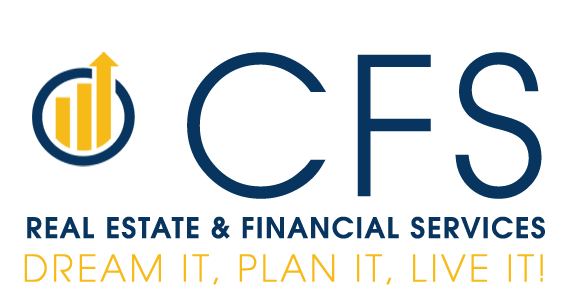In the intricate world of real estate investment and development, securing financing is often the linchpin for success. Whether you’re a seasoned investor or a first-time homebuyer, understanding the nuances of loan facilitation can make all the difference in achieving your property ownership dreams. In this comprehensive guide, we’ll delve into the fundamentals of real estate financing, explore various loan facilitation options, and provide invaluable insights to empower you on your journey to property ownership.
Understanding Real Estate Financing
Loan Facilitation Real estate financing refers to the process of acquiring funds to purchase, develop, or renovate properties. These funds are typically obtained through loans, which are structured agreements between borrowers and lenders specifying the terms and conditions of the transaction.
Importance of Loan Facilitation in Real Estate
Loan facilitation plays a pivotal role in the real estate ecosystem for several reasons:
- Access to Capital: Real estate transactions often involve substantial sums of money, making access to capital essential for investors and homebuyers alike.
- Leverage: Loans allow investors to leverage their capital, enabling them to acquire properties that would otherwise be out of reach.
- Flexible Financing Options: Loan facilitation offers a range of financing options tailored to meet the diverse needs of borrowers, including conventional mortgages, government-backed loans, and specialized financing for commercial and investment properties.
- Mitigating Risk: By spreading the cost of property acquisition over time, loans help mitigate the risk associated with large upfront investments, thereby diversifying investors’ portfolios.
Types of Loans for Real Estate Financing
Conventional Mortgages
Conventional mortgages are the most common type of home loan offered by banks, credit unions, and mortgage lenders. These loans typically require a down payment ranging from 3% to 20% of the property’s purchase price and are subject to credit and income requirements. Conventional mortgages offer fixed or adjustable interest rates, with repayment terms typically spanning 15 to 30 years.
Government-Backed Loans
Government-backed loans, such as those insured by the Federal Housing Administration (FHA), the Department of Veterans Affairs (VA), or the U.S. Department of Agriculture (USDA), provide alternative financing options for homebuyers who may not qualify for conventional mortgages. These loans often feature lower down payment requirements and more flexible credit criteria, making homeownership more accessible to a broader range of borrowers.
Commercial Loans
Commercial loans are designed for financing commercial properties, such as office buildings, retail centers, and multifamily complexes. These loans may be obtained from traditional banks, commercial mortgage lenders, or private investors and typically require larger down payments and more rigorous underwriting standards than residential mortgages. Commercial loans may be structured as term loans, lines of credit, or construction loans, depending on the nature of the property and the borrower’s financing needs.
Private and Hard Money Loans
Private and hard money loans are alternative financing options provided by private investors or lending firms. These loans are often used by real estate investors and developers who require quick access to capital or have difficulty obtaining financing through traditional channels. Private and hard money loans typically feature higher interest rates and shorter repayment terms than conventional mortgages but offer greater flexibility and expedited approval processes.
The Loan Facilitation Process
Prequalification
The loan facilitation process typically begins with prequalification, during which borrowers provide financial information to lenders to assess their eligibility for a loan. Prequalification involves a review of the borrower’s credit history, income, assets, and debt-to-income ratio to determine the maximum loan amount for which they qualify.
Loan Application
Once prequalified, borrowers submit a formal loan application, providing detailed information about the property they intend to purchase, their financial status, employment history, and any other relevant documentation requested by the lender. The loan application process may vary depending on the type of loan and the lender’s requirements but generally involves thorough due diligence and underwriting procedures to assess the borrower’s creditworthiness and the property’s value.
Loan Approval and Closing
Upon approval of the loan application, the lender issues a loan commitment letter outlining the terms and conditions of the loan. Borrowers review and sign the loan documents, and the transaction proceeds to closing, where the loan funds are disbursed, and the property ownership is transferred to the borrower. Closing costs, including loan origination fees, appraisal fees, and title insurance premiums, are typically paid by the borrower at closing.
Conclusion:
Navigating the complexities of real estate financing can be daunting, but with the right knowledge and guidance, you can achieve your property ownership goals with confidence. Whether you’re purchasing your first home, expanding your investment portfolio, or embarking on a commercial development project, understanding the various loan facilitation options available to you is essential.
At CFS Companies Inc., we specialize in real estate financing solutions tailored to meet your unique needs. Our experienced team of professionals is committed to providing personalized guidance and support throughout the loan facilitation process, from prequalification to closing and beyond. Contact us today to learn more about how we can help you navigate the world of real estate financing and turn your property ownership dreams into reality.
Ready to embark on your real estate journey?
Visit CFS Companies Inc. now to explore our comprehensive range of real estate financing solutions and take the first step towards achieving your property ownership goals.

